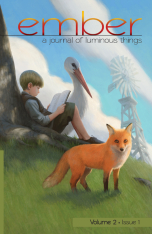As a writing instructor, I often wondered how my students had made it through high school with their limited writing skills. To me, their writing was an indication of the condition of their minds. In this digital age, many are losing the ability to communicate, and not just through writing. In a recent conversation with the principal at my daughter’s high school, she said some of her students can’t even talk face-to-face anymore. When she asked one to apologize to another, that student asked if she could text the apology instead.
Pulitzer Prize-winning author and Presidential Medal of Freedom recipient, David McCullough said, “Writing is thinking. To write well is to think clearly. That’s why it’s so hard.” His assertion is supported by modern psychology. If you’re interested in this, here’s an article by Keith Oatley and Maja Djikic from Psychology Today: “Writing is Thinking.”
When I came back to writing at the age of 28, I wanted so badly to be published. Now, I’ve never actually stopped writing. I churned out essays as an English major, but when I say I came back to writing, I mean stories and poetry. I grew up absent from my own childhood, preferring to create alternate worlds instead. I also read. A lot. I preferred the written word to the harsh reality of life in an unstable and abusive home. Probably what saved me was the ability to safely escape through books, and writing provided a way for me to order my thoughts and deal with things in a productive–rather than destructive–way.
Because writing came so naturally to me, I thought I would be published instantly. I was mistaken. I had to learn how to edit. I had to learn the meaning of revision. Re-vision: taking another look. Looking deeper. Reading as if you’re someone else. The words we find so pretty and perfect often fall short of our intentions. In my post about balance, I discussed how “most of the editing and revision process happens inside my head, before I even begin to write.” It hasn’t always been that way. I had to learn that writing is a process.
This week, I proofed my story, “Fear of Sudden Things,” for EMBER: A Journal of Luminous Things. [I should mention that I also read through most of the issue after I finished proofing mine. It is a beautiful publication–for younger readers, as well as adults–filled with magical illustrations, stories, and poems by talented artists and writers. It is worth a subscription, for sure. But, in the words of LeVar Burton, “you don’t have to take my word for it.” Check it out for yourself! You’ll be glad you did!]
As I read through my story, witnessing it in the digital form before it goes to the printer, my vision blurred from tears of sheer amazement. I wrote it close to 2 years ago. When I submitted, they accidentally rejected it. Then, a few months later, an editor contacted me and stated that Brian Lewis was asking about my story. They then realized their error. Laughing, I told them in my reply that things like this happen to only me.
I mention this because the story was rejected, then accepted back in March, and I am just now proofing it for publication. The entire process has taken 2 years. On Sunday, I received an acceptance from HOBART for my story, “Forensics and You.” I sent an immediate letter of gratitude and received an instant reply to proof the story, which will appear in the web edition on November 24th. I wrote this story last June.
Long story short: the entire process requires patience, faith, and an unbeatable confidence in your own ability. I cycle through loving, hating, doubting, and back again–even after publication. I worry that it’s never good enough. But this says more about the state of my mind than my writing. It’s determination to keep going that leads me to success. When Yoda said, “Do, or do not. There is no try,” it’s obvious he wasn’t a writer. He was a Jedi Master. Sometimes trying is all we mere mortals can do. The rest is up to the editors, readers, agents, publishers, and whatever other employees handle our writing. I imagine the editors at PLOUGHSHARES sitting plumbers and cleaning ladies down at computers to filter through submissions. It’s probably a good practice. I mean, If plumbers and cleaning ladies actually want to read it, who wouldn’t?

